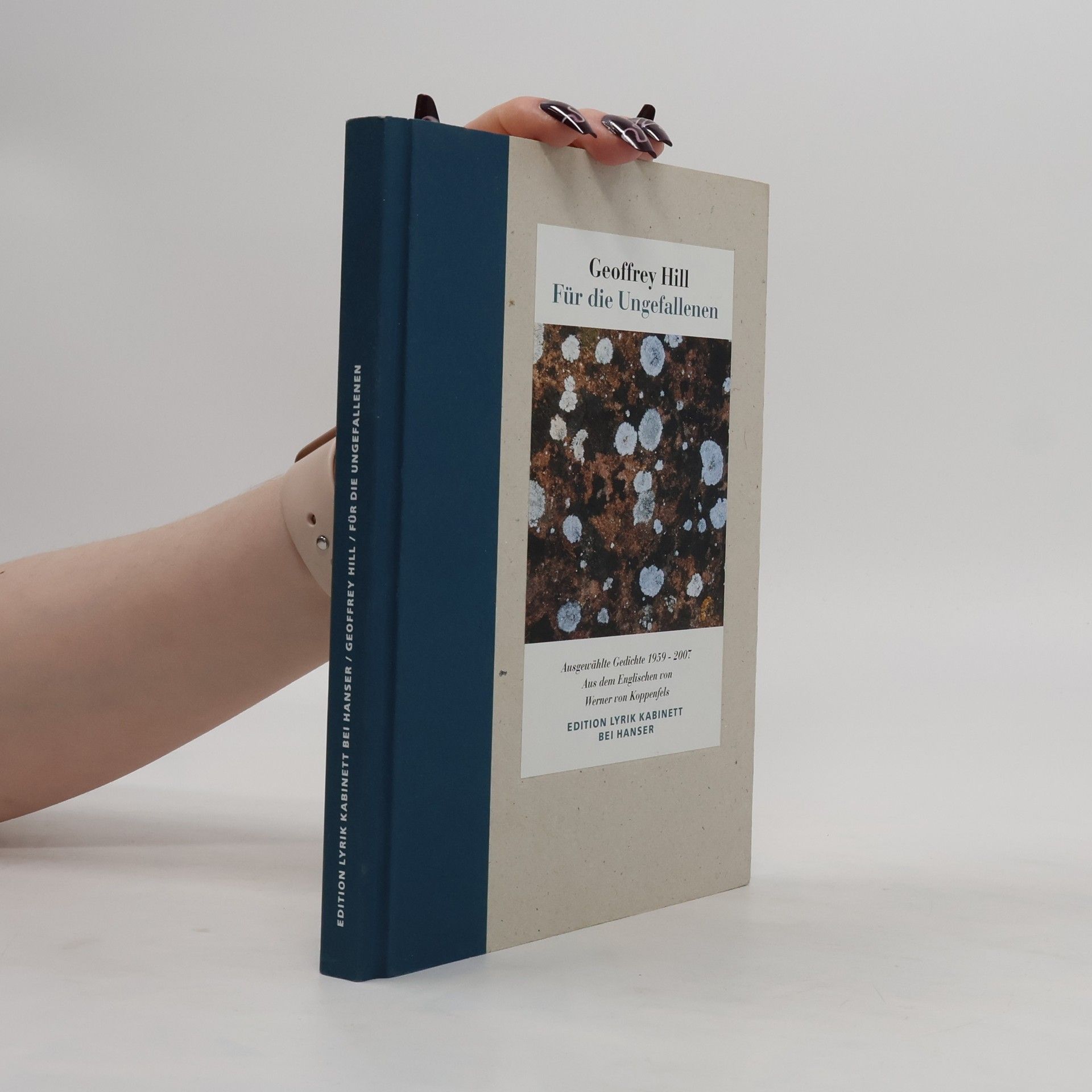In der angelsächsischen Welt zählt Geoffrey Hill zu den größten Lyrikern der Gegenwart. Im weiten und tiefen Echoraum seiner Sprache begegnen sich antike Autoren und biblische Propheten, politische Denker und Barockdichter, verfolgte Poeten und Männer des Widerstands. Seiner ersten Gedichtsammlung von 1959 gab Hill den mehrdeutigen Titel „For the Unfallen“. Er gilt den Überlebenden des Krieges, zugleich aber auch all den „Ungefallenen“, die sich dem Verrat an der Zivilisation verweigerten. In der grandiosen Übersetzung von Werner von Koppenfels wird ein großer Lyriker auch für uns entdeckt.
Geoffrey Hill Book order (chronological)
June 18, 1932 – June 30, 2016




Selected Poems
- 288 pages
- 11 hours of reading
Dealing with the densities of the poets expression, and the forces in his syntax and rhythms, this poetry aims to achieve a strength, memorability and precision beyond the abilities of any other poet writing in English.
Současný anglický básník Geoffrey Hill, jenž ovšem už druhé desetiletí žije a píše ve Spojených státech, se ve své generaci jediný aktivně hlásí ke křesťanskému kulturnímu dědictví. Vedle básnicky evokovaných dějin Anglie (nejsoustavněji ve sbírce básní v próze Mercijské hymny, jejíž kompletní překlad je zařazen v této sbírce) najdeme v jeho pozdějších verších rovněž inspirativní ohlasy ze středoevropské oblasti, především z polských a českých dějin.